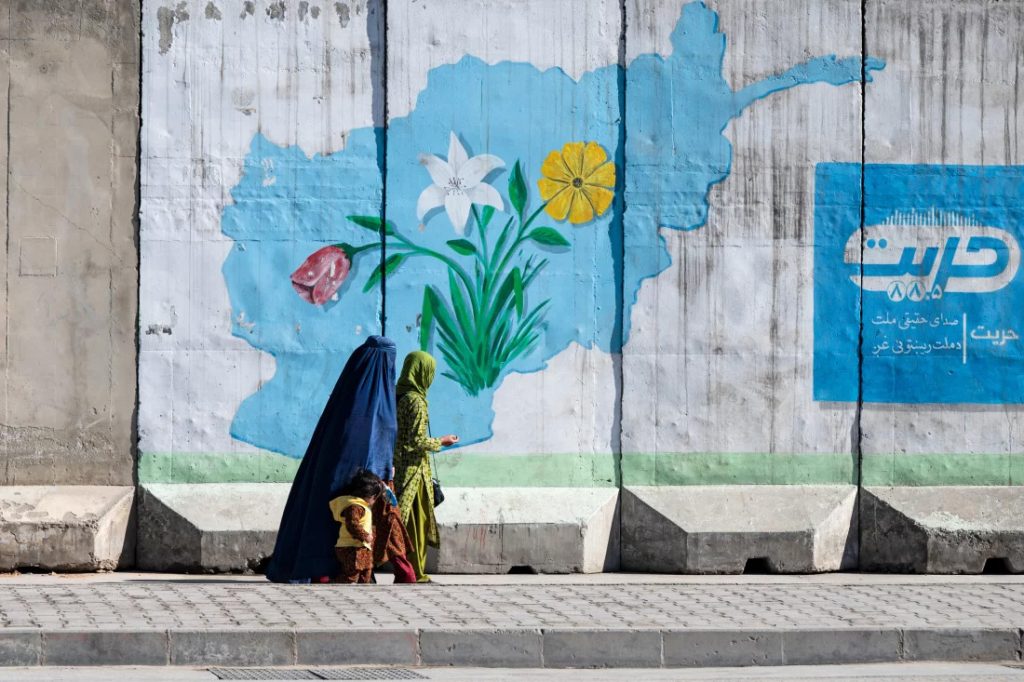The Taliban’s Morality Police Law and the Gradual death of Women – Part 1
Published on Tuesday, September 17th, 2024
Written by Rahim Rostayee

Introduction
The Taliban’s Ministry of Justice has formally published its new ‘Promotion of Virtue and Prevention of Vice’ law, signed into effect by their supreme leader, Hibatullah Akhundzada in official journal number 1452, July 31, 2024. This 35-article law, divided into four chapters, imposes sweeping restrictions, especially on Afghan women. While the law outlines general guidelines for both men and women and specific roles for the morality police, the article dedicated to women has sparked global outrage. The question now is: what specific limitations has this new law placed on the lives of Afghan women?
The Taliban’s ‘Promotion of Virtue and Prevention of Vice’ law contains specific articles dedicated to imposing severe restrictions on Afghan women. Beyond the previously implemented 20 decrees by Hibatullah Akhundzada, which banned women from education, work, parks, sports, government jobs, protests, music, acting, dancing, appearing on TV without a full burqa, driving, language courses, choosing their own field of study, going to women’s public bathhouse, working as beauticians, owning shops, participating in academic festivals, and working for NGOs, this new law introduces further limitations. A comprehensive review of these additional restrictions will be provided below.
1. Complete veiling: Since seizing power in Afghanistan in 2021, the Taliban have consistently emphasized the importance of hijab and declared it an immutable principle of their governance. They have been relentless in enforcing this mandate. Article 3, section 10, defines ‘Islamic hijab’ as clothing that covers a woman’s entire body and face from the view of non-mahram men, stipulating that it should not be thin, short, or tight. Section 4 of the same article reiterates this requirement, demanding that women cover their entire bodies, including their faces, both indoors and outdoors. The term ‘thin clothing’ is not clearly defined. It is not known whether “thin clothes” are form fitting clothes that no woman in Afghanistan has ever worn in public. Does it include any clothes, except thick clothes? Similarly, the definition of ‘short clothing’ is vague. Does this include clothes that reach the ankles? Additionally, the prohibition of ‘tight clothing’ lacks specificity. Does any type of pants constitute tight clothing? This ambiguity not only restricts women’s dress but also leaves room for abuse by the morality police.
2. Covering Women Faces: Articles 13, section 1 and 2, emphasize the obligation of women to cover their entire bodies, referring to it as ‘covering the ‘awrah’ (private parts) and wearing ‘hijab.’ Covering the face is also deemed necessary to prevent ‘fitnah’ (temptation or disorder). The article states, ‘Covering the entire body of a woman is mandatory. Concealing the face of a woman is necessary to prevent fitnah.’ Article 13, section 5, also mandates covering the woman’s face, equating it with hijab. However, various interpretations of Islamic hijab exist in authoritative Islamic sources. Moreover, the term ‘fitnah’ is not clearly defined in this context. The fear of potential ‘fitnah’ does not justify imposing such a blanket rule on all women, forcing them to cover their faces. It is illogical to impose a universal rule on all women based on the possibility that one person might be tempted. Therefore, this ruling is considered arbitrary.
3. Silencing Women’s Voices: The third section of this article states, “Women’s voices (singing loudly, reciting poetry, reading aloud in a mixed gathering) are considered ‘awrah’ (private parts).” This ruling effectively bans women from singing, performing music, or even reciting religious poetry or reading the Quran aloud, regardless of the audience. It completely silences women’s voices, depriving them of the right to express themselves through art and music. It is particularly striking that women’s voices are categorized as ‘awrah,’ a term traditionally associated with private body parts seen by others. The fact that ‘awrah’ now extends to audible aspects, such as the voice, is a significant expansion. Relying on unverified hadiths and narrations as justification for such a restrictive law is insufficient and cannot be considered a valid legal basis.
4. Restricting Women’s Gaze: section seven of Article four prohibits women from looking at the bodies of unrelated men: ‘It is forbidden for adult unrelated men to look at the bodies and faces of women, and for adult women to look at the bodies of unrelated men.’ This section explicitly forbids women from even glancing at unrelated men. In essence, women are denied the right to look at men outside of their immediate family. The implementation of such a law confines women to their homes, preventing them from engaging in everyday activities such as shopping, working, or simply enjoying leisure time. In effect, this law condemns women to a life of isolation and seclusion. It is tantamount to a slow, painful death.
This Article will be continued in issue 95 of New Home.
Minnesota Afghans and Allies Organize Protest
Written by Gabe Van de Water

On August 8th team members at Afghan Cultural Society joined local Afghans and supporters to hold a protest that included speakers from the Afghan and Iranian community and concluded with a group Dabke in solidary with Palestine. Nasreen Sajady discussed world powers turning a blind eye to human rights violations in Afghanistan in favor of securing mining contracts and other profitable ventures in collaboration with the Taliban. She also discussed how Afghans from all walks of life are repressed both at home and abroad as refugees.
Rohullah Bizan, a recent arrival, talked about his family back home: “ I am worried about my 16-year-old niece, I am worried about my 18-year-old sister, and I am worried about my 50-year-old mother…My sister will have to go to the grocery shop…she won’t be able to talk to someone, she won’t be able to buy [anything] or interact with anyone…If she does [interact] with anyone, they are literally allowed to arrest her.”
Sima Shakhsari, a professor at UMN, also spoke about the common struggle of women in Iran with women in Afghanistan, and the “nexus of U.S. colonialism and the Taliban” that have contributed to the current crisis in Afghanistan. They also warned against a paternalistic or orientalist approach towards women’s struggles in both countries, or for any calls for foreign intervention such as sanctions. “…Iranian women or the women of Afghanistan have the capacity to fight for their rights, they do not need the US or any other foreign power to come and “liberate” them, right? They can do it themselves.”
